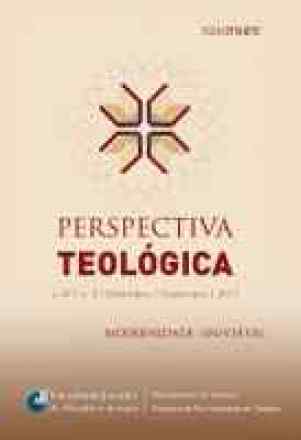¿BARRABÁS O JESÚS BARRABÁS? CONSIDERACIONES CRÍTICAS SOBRE EL OPTIMISMO CRÍTICO TEXTUAL DE LA VARIANTE DE MATEO 27,16-17
Perspectiva Teológica
¿BARRABÁS O JESÚS BARRABÁS? CONSIDERACIONES CRÍTICAS SOBRE EL OPTIMISMO CRÍTICO TEXTUAL DE LA VARIANTE DE MATEO 27,16-17
Autor Correspondente: Carlos Olivares | [email protected]
Palavras-chave: Crítica Textual, Variante Textual, Orígenes, Jesús Barrabás
Resumos Cadastrados
Resumo Inglês:
The textual variant “Jesus Barabbas” appears in the passion narrative of the Gospel of Mathew (Matt 27,16-17). Matthean commentators usually accept this passage as correct, and support its interpretation by means of methodological conjectures in the field of textual criticism. This paper criticizes such optimistic textual criticism by showing the difficulties concerning the authenticity of the variant. This article discusses the external (e.g. textual types, Origen) and internal evidence (transcriptional and intrinsic ones) and shows how the use of the methodological mechanism of both kinds of evidences prevents optimism regarding the realism of the passage “Jesus Barabbas”.
Resumo Espanhol:
La variante textual “Jesús Barrabás” aparece en el relato de la pasión del evangelio de Mateo (Mt 27,16-17). Los comentaristas mateanos usualmente aceptan como correcta esta lectura, y apoyan esta interpretación describiendo conjeturas metodológicas del criticismo textual. Este artículo critica este optimismo critico textual, mostrando las dificultades que existen para establecer la autenticidad de la variante. El trabajo discute la evidencia externa (e.g. tipos textuales, Orígenes) e interna (transcripcional e intrínseca) y revela como el uso de los mecanismos metodológicos empleados por ambas evidencias impiden ser optimistas respecto a la realidad de la lectura “Jesús Barrabás”.

